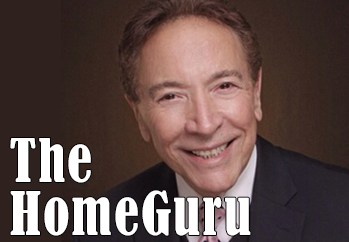What Does Your Address Say About You? Plenty
Opinion Advocates for ideas and draws conclusions based on the author/producer’s interpretation of facts and data.
 By Bill Primavera
By Bill Primavera
Every so often, depending on what former President Donald Trump is up to, there is a discussion among some residents of my building at Trump Park about changing its name, both in its title and address.
I’m always in favor of keeping our name, feeling that, no matter what one’s political bent, the brand projects quality, even luxury, rather than just a regular numbered street address. Besides that, it’s a real pain in the butt to deal with address changes.
Speaking of politics, I have a good community friend who told me when I moved to Trump Park that she would never live there even if they paid her to do so. She says that, but I bet she would, even if she had to hold her nose and blindfold herself to do so.
Every town has streets and areas that are considered either fashionable or not, except for some lofty zip codes that have only McMansions.
The area and its reputation dictate the prices found on its houses. One of my worst experiences in selling real estate involved a couple who came to me with a strict budget for a home. I scheduled visits to all those that came within that price range. None of them were to the liking of the couple when they saw the condition and the parts of the town in which they were located, and that got them angry at me.
“Where do YOU live?” the belligerent husband asked me.
Another factor to consider is that places can change over time. Just for the fun of it, I located online a photo of the address at which I was born back in the dark ages. I was somewhat dismayed to find that the building had been demolished and the site is now a junkyard. So much for finding my roots.
When I was an adolescent, I saw the movie “My Sister Eileen” and was intrigued by Eileen and her sister’s experience in moving from Ohio to Greenwich Village, which was much more bohemian and affordable in those days than it is today. That’s the neighborhood that I set my sights on.
When one of my father’s younger co-workers, who was born in New York City found this out, he told me that was not a good idea because “those kind of weird people” live there. I was so naïve at the time, I didn’t know what he was talking about and, indeed, that’s the first neighborhood I explored when I came from Virginia to the big city.
In those days, before the internet (hell, even before computers), the only way to find an apartment was in print, either in The New York Times or The Village Voice or a sign at a building’s entrance.
I came to the city with two friends from Virginia and we happened to pass a brand new and beautiful building called the St. Germaine at West 10th Street and Greenwich Avenue. It had a “new apartments for rent” sign at its entrance. I thought the name had such a nice European ring to it that was sure to impress my family and friends back home – I would proudly include the name of the building in my return address – so we rented what we could afford, a studio apartment.
For three guys crammed into a studio, that quickly turned out to be a bad idea, especially when two of us would receive a phone call from our third roommate, a real lothario, asking us to get lost for an hour or two. Since I was the only one of us who was over 21, my name was on the lease, and I couldn’t afford the place on my own. So we had to move like thieves in the night, forsaking our deposit and abandoning our (my) lease.
I was lucky to find something affordable nearby, but it was a five-floor walk-up, a “cold water flat” that had luckily just been equipped with warm water. The building didn’t feature a fancy name, and it was not exactly fun or fancy in the morning to get into a raised bathtub in the kitchen that also served as a breakfast table when its lid was closed after I bathed.
When I moved to Westchester, it was to an historic home that bore the name of its original owner, a Revolutionary War patriot. To announce its lineage to passersby, I quickly installed a small plaque that included its year of construction (1734) and the original owner’s name. I somehow thought that action increased its perceived value.
However, when I sold the home, which had been completely renovated and, except for its architectural style, gave no indication of its age, one woman came by and asked if 1734 was the year it was built. When I informed her that it was, she slammed the listing sheet down and walked out, without even touring the home.
The real estate business is filled with stories of expectation, elation and disappointment, but is always interesting when exploring the ways people relate to a property, its community and address and the messages it sends to the public.
Bill Primavera is a realtor associated with William Raveis Real Estate and founder of Primavera Public Relations, Inc., specializing in lifestyles, real estate and development. To engage the services of The Home Guru and his team to market your home for sale, call 914-522-2076.

Examiner Media – Keeping you informed with professionally-reported local news, features, and sports coverage.
